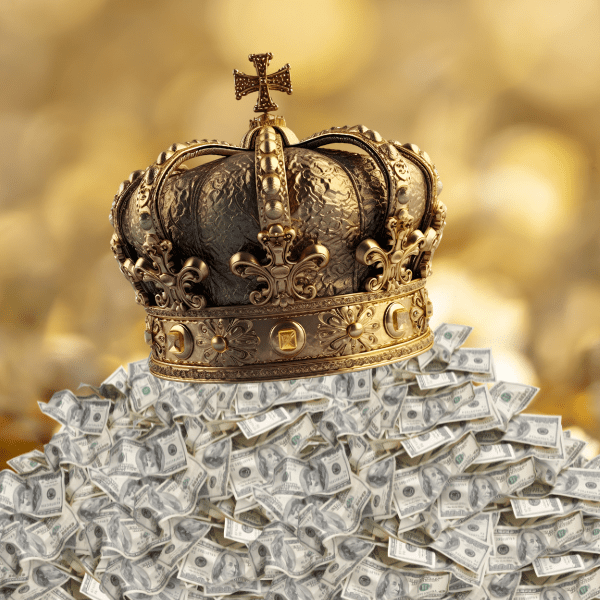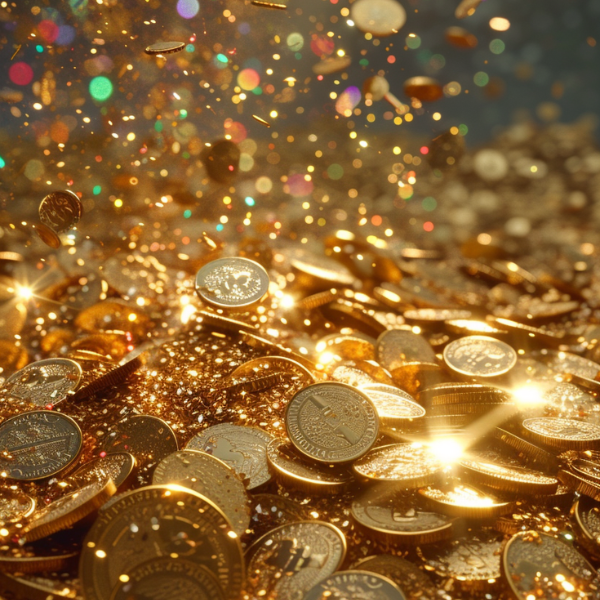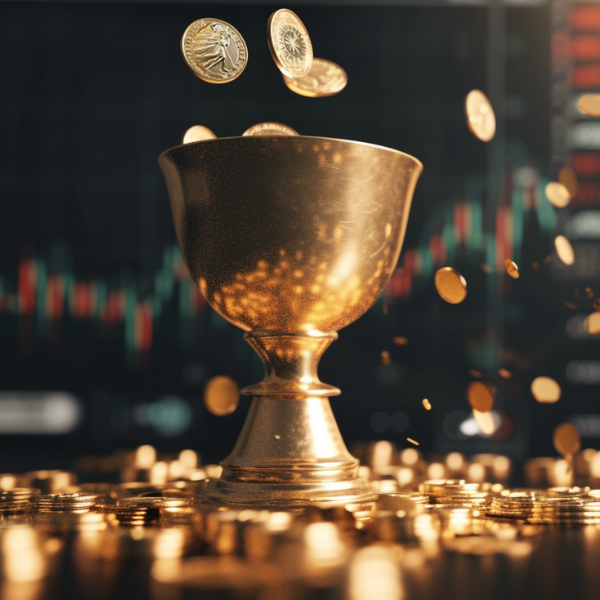Major shocks will become the norm from now on
THE MATTERHORN INTERVIEW – May 2013 Special with Tekoa Da Silva
“Major shocks will become the norm from now on”
On behalf of Matterhorn Asset Management / GoldSwitzerland, independent financial journalist Lars Schall interviewed financial markets publisher Tekoa Da Silva about, inter alia, opportunities and risks in the precious metals field, the lack of enforcement of regulatory rules, what he interprets as “upside-down hyperinflation,” the commodities market in Brazil, and the unknown factors related to both China’s and Germany’s gold reserves.
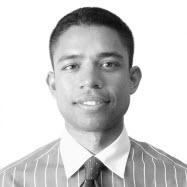
Tekoa Da Silva, born 1983 in Boston, Ma., USA, is a resource investor, financial market writer and entrepreneur. He has invested in gold since his late teens, has built and sold a gold trading business, and has interviewed many of the world’s top leaders in the precious metals and mining space. His articles and interviews are republished on hundreds of websites, and he views today’s market in precious metals as a “once in a millennium” opportunity; his website is named Bull Market Thinking. Da Silva lives and works both in Brazil and in the United States.
Lars Schall: Tekoa, do you agree that the fight that’s raging in the gold and silver markets will ultimately be decided physically?
Tekoa Da Silva: I like that question. You know, it’s so interesting – there’s this game you see at carnivals called, “Whack a mole”, where moles pop up one at a time and you hit the head, whacking it down, while waiting for the next to pop up. That’s kind of what’s happening in the precious metals market. People talk about manipulation and suppression in the market, and maybe you can look at it from the standpoint of those groups. If that’s the case, it’s “whacking the moles” as they pop up one at a time, in order to keep the market down. Or you can just call it “sellers” doing that. In my opinion, at some point all the moles in the world are going to pop up at the same time, and you simply can’t whack 100 moles with the same hammer. At that point there will be a realization in the market globally, and the price will totally change character for the rest of the bull market.
L.S.: You think that the drain of physical gold accelerates. How do you come to that conclusion and what are the implications of this?
T.D.S.: Well, I think it’s people saying, “Hey, I don’t really trust all these onion-like layers of counterparty risk in between me and my physical assets”. As we both know, people buy physical gold because they don’t want to deal with counterparty risk. Why own it and then have ten counterparties in between you and your assets? And I further think people are wising up and saying, “What’s the point of owning physical gold if I don’t actually have it in my possession?” Kyle Bass for example, has been smart enough to point out a year or two ago that it was obvious from a fiduciary standpoint to pull your physical ownership out of the Comex and other similar markets because the fractional reserve percentage he quoted at the time, was something like 2 or 3 per cent of the outstanding trading paper. So he concluded it was wise to simply pull out and protect your assets. I certainly agree with that and I think other participants in the market are coming to that same conclusion as well.
L.S.: Why would you say that people should rather stay away from ETFs in gold and silver?
T.D.S.: I wouldn’t necessarily say that people should stay away from gold and silver ETFs, because I think everyone should make up their own mind based on what’s best for them rather than blindly follow recommendations, despite how intelligent or well-researched those recommendations may be. But again, I think it comes back to what are your reasons for owning it? I think anybody who purchases the physical gold ETFs should know what the risks are, and understand that you take on risks when you own them. So you have to say, if I have a house that’s made out of straw in Southern California, and it’s 100 degrees outside everyday—you’re at risk of a fire at some point. If you take on that risk, you simply cannot be surprised if the market calls you out at some point and your house burns down. Furthermore, I think the same thing can be said about any of these financial instruments in the marketplace
L.S.: What is the most important thing related to the precious metal markets of which you think that people are usually not paying enough attention to?
T.D.S.: I think people could benefit by keeping a closer eye on what the smart money is doing and how they’re doing it. I get lots of questions from people about the direction of the market and if the short and mid-term is going to go lower, is it going to do this or that. But nobody knows the answers to those questions. You can only look at what the smart money is doing and somewhat reflect that into your own life. So at this point the smart money owns tons of gold. They own the mining shares also, and they’re adding to their positions in a very significant way. I think they’re adding to positions with long-term expectation, and thus I think by focusing on the long-term and by focusing on what the smart money is doing, can really help people.
L.S.: Do you think that the volatility in gold and silver will increase enormously in years to come?
T.D.S.: The volatility in everything is going to increase dramatically, and there are a few reasons for that. I published a chart on my website recently, of the long-term volatility in the markets following the formation of the FED after 1913. From the standpoint of the dow to gold ratio, there have been these gigantic swings in over-valuation to under-valuation following the formation of the FED in 1913. What’s interesting about these swing extremes is that they’re “echoing” back and forth to ever higher levels as central banks play a larger role in the economy. 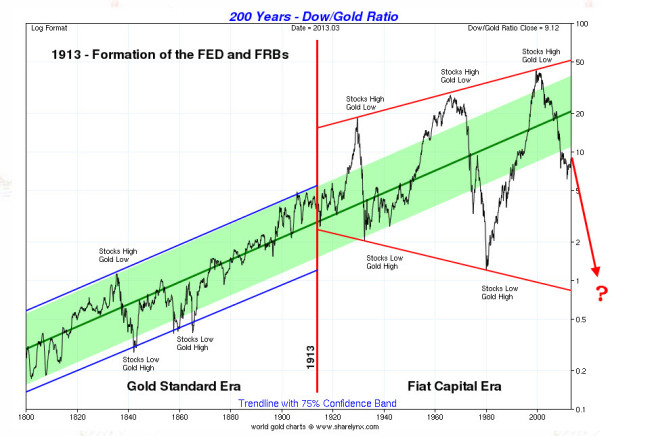 So what that tells me is the power they have over inflation and deflation is greatly exaggerating the natural cycles of the economy. When you have that kind of power, you can anticipate the direction of the market and place your bets accordingly. So getting back to volatility–we have global central banks creating geysers of new liquidity all over the world, and a new generation of global investors are trading with stop orders. That combined with the algorithmic traders, and I think volatility is only going to become greater and greater. When you look at those items in combination with these overnight banking and political events, it creates a recipe where we’re all going to have many days where you wake up and everything looks different. There will be major shocks, and I think it’s going to become the norm from here on out.
So what that tells me is the power they have over inflation and deflation is greatly exaggerating the natural cycles of the economy. When you have that kind of power, you can anticipate the direction of the market and place your bets accordingly. So getting back to volatility–we have global central banks creating geysers of new liquidity all over the world, and a new generation of global investors are trading with stop orders. That combined with the algorithmic traders, and I think volatility is only going to become greater and greater. When you look at those items in combination with these overnight banking and political events, it creates a recipe where we’re all going to have many days where you wake up and everything looks different. There will be major shocks, and I think it’s going to become the norm from here on out.
L.S.: What are your thoughts on the equity markets, in particular in the US? Do you think it’s time to keep an eye on the exit door?
T.D.S.: I really don’t know. It seems so well-supported by the new liquidity that’s being created. If it can be that well-supported as a visual indication for political reasons or whatever else, I just don’t see any real expectation to expect that it would crash dramatically. It could – I don’t know, but maybe it can also go up another 8 or 10 per cent over the next few years. I really have no idea, but I do strongly believe that over the long-term we’ll see the ratios of equities equalize to the storm ratio-extremes seen in the past in terms of precious metals.
L.S.: Why is it that we see quite a lot of governmental interference in the market to prop up for example the equity market but very little interference when it comes to enforcement of the rules of regulation? I think this is one of the prime problems in the precious metal markets, correct?
T.D.S.: Yes, a lot of people have talked about that with regard to the precious metals market. When it comes to enforcing rules of regulation and supporting the markets and playing favorites, maybe you could say so. It wasn’t until recent years that I’ve felt this way, but I think that governments and politicians have got a pretty gigantic responsibility in that they’ve got to keep people happy. And unfortunately, the great masses of people don’t have the interest, time, or energy (but mostly the interest), to want to learn about what’s going on. I think if they carefully took the time to learn about what’s going on, they might realise that maybe the United States as a whole or North America as a whole would benefit by voluntarily changing the welfare system. I think the welfare system plays a big role in the government having to keep up the charade in terms of asset markets because of its impact on pension funds and retirement plans and so forth. When it comes to regulations and people breaking rules and so forth–no matter what, you’re always going to have a percentage of people that find a way to break rules. Also, when you have those same people playing a role in the regulatory bodies, you’ll get favoritism and things like that. However, I think that’s all going to end soon, because every unnatural advantage carries with it the seed of an even greater disadvantage. So eventually the toys in the game get taken away from the people who abuse them, and it’s just a matter of time in my opinion for all that to change.
L.S.: Let’s talk about the current gold demand in Asia by taking two examples and that would be China and India. It is said that China’s gold imports via Hong Kong were in March 223 tons and it was also said that the gold imports in April in India were 165 tons. Now, if you do the math for one year and put it in comparison to the mining supply of one year (between 2500 – 2800 tons), what does this tell you?
T.D.S.: Well, Lars, without actually looking at those numbers and comparing them between one another, I would say that it points to the Asian communities, they’re just extremely intelligent, and they understand what’s going on. You can’t fool these people; they’ve been around the block many, many times. Their culture carries with it teachings and understandings of these issues because their societies, again, have been around the block many times before. Therefore, what we’re seeing right now is just preparation by their people. I’m really looking forward to seeing what the end result is going to be in 10 to 15 years, as they’re accumulation of all these precious metals changes the positioning of all those families. They will no doubt be at much higher stations in life financially when the paper currency systems change.
L.S.: Yes. If you would guess, what would be your guess what the Chinese actually have now as their currency reserve in gold? How many tons? Do you think they’re already above 3000?
T.D.S.: Well Lars, I have no idea without looking at the specific numbers but in my opinion, people always talk about their position after the fact.
L.S.: Yes.
T.D.S.: So that’s obvious and it makes sense that they’re going to accumulate in the most intelligent, crafty, and clever way they can, and once they have completed their positions, they’re going to talk about their book and then they’re going to announce it. And after the fact, obviously the price is going to rocket up.
L.S.: When we take a look at gold and silver from the individual level, you like to interpret both metals as checkboxes, very important checkboxes; what do you mean by that?
T.D.S.: I think that people should have a piece of paper, a list of checkboxes in their financial and personal lives and I think gold and silver should be among those checkboxes but they shouldn’t be the only checkboxes. There should be other things on there – like a stable home of your own, and investing in your immediate “space”, your family and your community and so forth, and somewhat hedging your consumption of food and other types of things that you need just to provide stability to your life. This will help you if there are ever interruptions of basic services and supplies in your country or your area, which you can bet on in the years ahead. And so getting back to gold and silver, one thing that I published on my site is a free report that talks about what I call a “precious metals hoard,” and I think that outside of having an investment portfolio, people should have a hoard. And when I say the word, “Hoard”, it’s for a reason because it reminds me of this thing that you stash away, that nobody really knows about, but that’s your life-line, that’s something that you can fall back on. Repeatedly we’re seeing around the world, like Venezuela, Argentina, Cyprus, and other cases where again, there’s extreme overnight changes of things that happen in the monetary system and the majority of the population woke up the next day with no cash, no resources—with nothing. When you have no resources and you are in need of food or electricity, you have to pay through the nose for those things. The price you pay is five or ten times more than it was the day before, and so people who are prepared for those kinds of events can not only defend and protect themselves, and provide for their families, for their friends and their communities, but they can also be there for the speculative events that come up–for the opportunities to buy things at really amazing prices. So I think by having a personal hoard of gold and silver that you don’t look towards for capital gains, but use strategically in anticipation of those events, will provide great value to people.
L.S.: So you think that people should prepare themselves for, let’s say, an occurrence of a temporary barter system?
T.D.S.: Yes, absolutely. I’m not arguing for a return to a barter system. I know people are saying, “Oh, we’re going to go back to a barter system and it’s going to be like this or that”. I think there will be short-term events, maybe in every country of the world, where things might descend into a barter-type arrangement for a couple weeks or months. And when we say, “Barter” I don’t mean like caveman type of things but it sometimes could include things where a person would trade a car for a boat or they would trade cooking oil for milk, that kind of thing. But what do you do in those situations where all the ATM machines shut down like they did in Cyprus and you can’t get physical cash to buy your regular goods? So, yes, shorter-term I think every country in the world is at risk at any point in time to have barter system arrangements spring up in the event that things are shut down. That’s to be expected and I think that’s normal. I don’t think it should scare anyone, they should just view it as, “Hey, this could happen, it’s normal,” and be prepared for it.
L.S.: Another thing that you pay attention to and think about is the so-called “upside down hyperinflation.“ What do you mean by that?
T.D.S: Thanks for asking about that, Lars. I’ve received so many comments from people and I’ve talked about hyperinflation in the past, and I’ve interviewed people about it. When we think about hyperinflation, we think about this thing in Germany and Zimbabwe, where people had wheelbarrows full of money, wheeling it around and using it as firewood because it was cheaper than actual wood. But in my opinion, I’m not sure we’re going to see hyperinflation in the traditional way that we’ve seen it in the past and that’s because of the electronic nature of the currency systems in the world today. You don’t need paper money anymore—you can simply shut down the system, make whatever changes you need to and then re-open the following day. My opinion is that we already have seen and will see more “upside-down hyper inflations,” where the systems are shut down, you have assets that are either re-valued or directly confiscated which do not appear like inflations, but if you flip them over and measure them the other way, they appear as a hyperinflation. Let’s look at it like this; if you have an account in Cyprus with €100,000 and it was shut down and €40,000 was taken away as a confiscation and you now have €60,000–guess what, you can only buy €60,000 worth of gold that following day. So, that’s the same thing as saying that you have 40 per cent less purchasing power in gold terms as you did the day before, and if hyperinflation were to occur, let’s say if there were to be a 40 per cent increase in the quantity of currency, that’s the same thing as saying you can only buy 60 per cent of the gold as you could the day before. So, it’s flipping things upside down or flipping them back up to where I think hyperinflation is really the same thing as confiscation and asset revaluation, but they’re just called different things depending on the procedures and words used.
L.S.: When people think about buying physical precious metals, when would you say is the best time to do it?
T.D.S.: People should find a broker they trust and they should buy every week or every month. When you look historically, hundreds, and thousands of years ago…people have been using coinage for money, minted in silver, copper, and gold. And so what people should have, are disciplined gold and silver savings programmes, where they save regularly, and don’t necessarily always look at the price. By doing it regularly–weekly, monthly or quarterly it does a couple of things. One, it provides a person with the habit of discipline and that in turn builds confidence in the procedure. They gain the experience of doing it regularly, they learn the system, they learn about premiums, and they know what the insurance and the shipping fees are like. So, after a year or two of disciplined saving structure, they become experienced at saving in that particular metal and they don’t need to rely on the marketplace for opinions all the time. They’ve built the experience on their own.
L.S.: Are precious metals still store houses of value?
T.D.S.: Yes, always. Absolutely.
L.S.: Why so?
T.D.S.: Well, they’ve been so for thousands of years, the global production supply for gold only increases at a one per cent rate every year, or something very small like that. And you simply can’t create any more of it. But it has historically functioned very, very well as money and I think it’s one of those things that are so simple in nature that people want to challenge it. I think it’s a human tendency to want to make things more complex and challenge what nature has provided us. I heard someone say once that gold is God’s money, created by God, Mother Nature and the earth. And I think from a simplistic standpoint, yes, you can say that. That’s what its role is, that’s how it functions, and why challenge something that works so simplistically well.
L.S.: Do you think that the all-time stock of gold above the ground is vastly more than we usually assume? The official number is more or less 160,000 to 170,000 tons. Do you think that stock is accurate?
T.D.S.: That’s a really good question, Lars. I don’t know. I heard someone say once “only believe half of what you see and never believe anything you hear.” I don’t really believe or disbelieve anything anymore. I haven’t seen all that gold myself personally. I haven’t visited the vaults, I haven’t analysed it, I haven’t gone through the inventory and I haven’t personally spoken with all the central banks and governments of the world that own that gold. So, I really don’t know, but I think that probably only a percentage of the world’s gold is actually reported publically. There’s probably a lot of old gold in the world held by families, very old organisations, simply stored away in vaults and not reported anywhere. So in terms of the total gold stocks, maybe people should look at the numbers, and then decide for themselves.
L.S.: How do you think about mining share companies both in gold and silver? Will some of them end the downward trend any time soon?
T.D.S.: Yes, I do think so, but I don’t know when. At some point they’re going to do extremely well but I’ve felt that way and I’ve said that for years now and have been wrong. So I don’t know what the future holds exactly, but I think there are some amazing people in the mining sector that really stand out, people that are entrepreneurial and take major positions in the companies they run–the true wealth builders. And I think by standing behind and with those people you can sort of super charge your investments in mining stocks for when that turnaround occurs.
L.S.: What are your thoughts on the story related to the Deutsche Bundesbank and the New York Fed? For example, it will take apparently seven years to repatriate 300 tons of gold. Do you think the New York Fed has actually the gold or why does it take so much time?
T.D.S.: When someone says seven years, that’s the same thing as when someone asks you, “Hey, let’s go and do this sometime” and you say, “Yeah, let’s do that!” knowing full well you’re not going to do it. That structure of seven years basically means, “We’ll try and give it to you at some point.” So do they have the gold? I really don’t know. I don’t believe or disbelieve any aspect of it, but again, I’m not involved directly so I don’t know.
L.S.: Let’s pretend you are the Deutsche Bundesbank and you have roughly 4,000 tons of gold. Would you leave half of it in New York and London?
T.D.S.: Well, that’s sort of putting yourself at a disadvantage; it offers no upside. Unless there’s some back-end arrangement on that deal where the Bundesbank says, “Hey, we’ll leave our gold with you (to lease or otherwise) if in return you give us an advantage on a political or economic deal”. Unless there’s another part of the deal that nobody knows about, there’s simply no reason for them to leave it there. That’s like saying, “Frank–my dear friend, can I leave $10,000 with you for the weekend, can you hold on to it for me?” You only have something to lose. So, unless there’s an aspect of the deal that the world doesn’t know about, it seems like just a lose-lose situation for the Bundesbank.
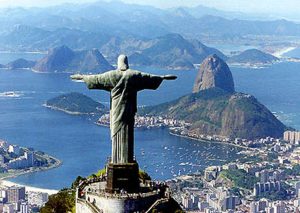 L.S.: I agree. Let us focus at the end of this interview on Brazil. What’s the attitude in Brazil towards gold and silver.
L.S.: I agree. Let us focus at the end of this interview on Brazil. What’s the attitude in Brazil towards gold and silver.
T.D.S.: Well, I’ve done a lot of looking around here in Brazil and I have to say that outside of jewelry for their babies, or for wedding rings, gold or silver doesn’t exist in the minds of Brazilians. Banks offer gold certificates, but people here are more interested in buying a cow, or some chickens, or a farm which they call here a “Fazenda”. They’re much more interested in owning a farm as compared to gold and silver. Also, people here view real estate as gold, and I think it’s because of the fact that land and agricultural products in Brazil are so abundant, that it’s just part of the culture. In the past when there have been currency problems in this country, that’s what’s protected them. So I think that’s what people look towards as a safe haven.
L.S.: The real estate market in Rio de Janeiro in particular is now the most expensive one in the world, right?
T.D.S.: I wouldn’t be surprised if that’s what the numbers are showing, the same with Sao Paolo. In terms of real estate in Brazil, especially in the context of a strong real, it’s wildly overpriced. I came to this country for the first time 15 years ago when things were cheap and amazing for a bargain hunter, and it’s not like that anymore. So I hope from that perspective the country has some sort of event that allows smart buyers to get positioned.
L.S.: Do you think Brazil is on the right tracks in general?
T.D.S.: The biggest problems the country faces in my opinion are the infrastructure, and a 40 per cent plus tax levied on all imported products except for things like books. So I think that all the technology-based imports that are being kept at high prices are preventing the people of the country from improving themselves and integrating with the rest of the world. In short, “prices” in the economy have progressed since I came to the country 15 years ago, but technology is “stuck” in the early 2000’s (and much earlier than that the farther away you travel from the major cities). The country is also working hard to develop its infrastructure which is borderline horrible at this point. They’re working on the ports, they’re working on building new roads but it’s going to take a long time; 10, 15 years for it to catch up I think infrastructure-wise with the rest of the world.
L.S.: However, you have the world football championship soon and the Olympics, so I don’t think you have 20 years.
T.D.S.: Yes, that’s right that you point out the World Cup and the Olympics, that’s mostly going to take place in the major cities, and the country is working hard to serve those groups, to serve those people and offer a great experience to the world at that time. But yes, we’ll see how it goes and we’ll see how things look afterwards when all the building stops. Hopefully some opportunities might present themselves.
L.S.: Do you pay attention to the oil business in Brazil? For example, the Carioca offshore field?
T.D.S.: Well, I’m in the state of Espirito Santo, and what I’m seeing is a gigantic amount of exploration and discovery happening off the coasts just a few minutes away from me. It’s having a gigantic positive impact on the economies of the state. And along with that, you have labour needed to explore those oil fields and build the support and infrastructure to help those guys. So from that standpoint, the country is doing really, really well. Brazil is a real commodity powerhouse and it can be much stronger with the infrastructure development which hopefully comes together over the next 10 or 15 years.
L.S.: And so you would say that long-term oriented investors should take a look at the commodity sector in Brazil, and in particular the energy business?
T.D.S.: Yes, under two conditions. One, if they have a strategic connection or relationship in a particular industry where they can allocate capital in a high leverage way, with excellence. Because if you just throw your money into the market at this point, you’re going to lose in a very big way. So, that’s the first condition. The second condition is if we get some sort of major pull back in the world and commodity prices in the Brazilian market and so forth that allows new capital to come in and at much lower process. So again, unless you have someone who is a leader in some area or segment of the industry or if there’s a major pull-back, I think those are the two conditions a person would need to look for in order to smartly add their money.
L.S.: Thank you Tekoa for the interview and your firm responses!
T.D.S.: Thank you Lars.
Matterhorn Asset Management is dedicated to wealth preservation through safe and secure silver and gold storage in Switzerland. Protect your gold in the world’s safest vaults. To become a client, click here.
About Edward Maas
Edward Maas
VON GREYERZ AG
Zurich, Switzerland
Phone: +41 44 213 62 45
VON GREYERZ AG global client base strategically stores an important part of their wealth in Switzerland in physical gold and silver outside the banking system. VON GREYERZ is pleased to deliver a unique and exceptional service to our highly esteemed wealth preservation clientele in over 90 countries.
VONGREYERZ.gold
Contact Us
Articles may be republished if full credits are given with a link to VONGREYERZ.GOLD

